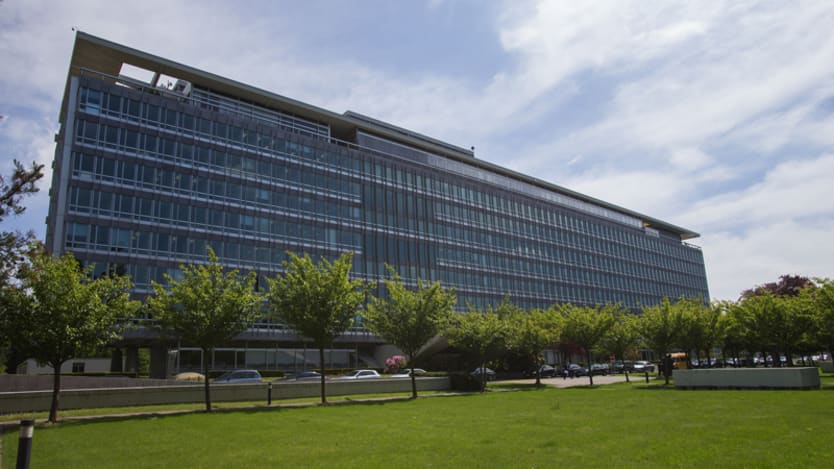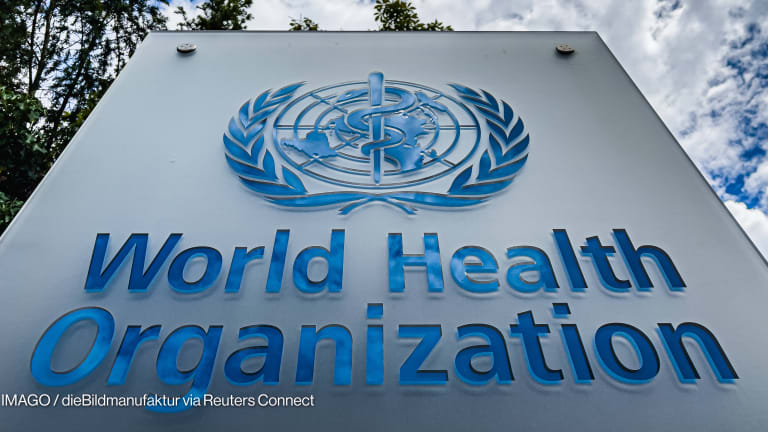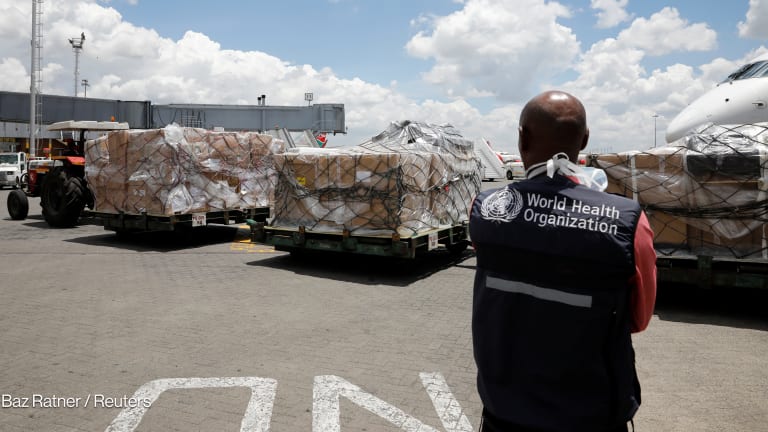
MANILA — The World Health Organization needs to invest more in its staff, particularly in leaders’ managerial skills, the organization’s ombudsman told member states during the 142nd session of the executive board held last month in Geneva, Switzerland, from Jan. 22-26.
The recommendation is based on the number of cases which ombudsmen have been receiving that point to “dysfunctional” relationships between managers and staff across the three country, regional, and headquarters levels of the organization. Managers may have the necessary technical skills and capacity, but they often lack the interpersonal skills required to ensure effective communication within their teams, have constructive conversation about performance, and resolve conflicts when they arise.
The ombudsman said the problem is “most strongly felt” in WHO country offices, and therefore can have an impact on how an office functions and its effectiveness.
“The fact of the matter is in selecting managers, the organization would always properly value soft interpersonal skills, and as little or no training in this area follows their appointment, new supervisors may find it difficult to engage with their staff, particularly regarding insufficient performance issues,” the ombudsman told the board.
See more related topics:
► 13 things to know about WHO's Geneva deliberations
► 'What worries me is not the money for WHO' — Tedros
► Tedros announces WHO senior leadership teamFor his first 100 days, WHO's new DG
WHO is aiming to put more emphasis on its work at country level, as spelled out in its draft 13th General Program of Work, and the ombudsman notes it would be vital for the organization to invest in manager trainings to improve their communication and conflict management skills, as well as cultural competencies. The ombudsman also recommends the WHO Secretariat establish a program allowing different stakeholders to provide confidential feedback to managers on their leadership. This way, any necessary actions, such as additional trainings, can be put in place.
This, however, is not the only problem that the ombudsman said appears to be rampant within the organization.
“There appears to be a prevalent perception among staff that the secretariat tolerates disrespectful behavior at different levels, and is not doing enough to put an end to these types of situations, particularly harassment,” said the ombudsman.
In addition, many staff members who’ve been stagnant in their positions feel “unmotivated” and “trapped” in their jobs, given the lack of career progression. They feel the organization is not doing enough to help them flourish. The ombudsman mentions the full implementation of WHO’s geographical mobility policy might be able to help, but noted the policy “may not prove sufficient given the dimension of the challenge.” Not all WHO staff, particularly those at headquarters, are supportive of the policy, which is currently running on voluntary basis until December 2018, and this could pose as an additional problem.
Efforts under way
To address deficits in managerial skills, the WHO Secretariat has entered into an agreement with two partner agencies to train their managers, starting with country representatives.
Apart from instituting an open door policy that allows staff to directly engage with senior leadership, WHO has also conducted a staff cultural survey to fully identify the persisting problems within the organization, what their possible root causes are, and potential solutions. Over 60 percent of staff responded to the survey, said Director-General Tedros Adhanom Ghebreyesus.
“I could have listed more problems as we have done the staff survey,” Tedros said to the board. “The problem is big, [so] we have to prepare a comprehensive plan and address it.”
The WHO aid chief said the plan will include “quick wins” as well as mid- to long-term solutions.
“As had been said by the ombudsman, the problems are systemic, and for systemic problems you need to have systemic solutions, structural solutions. So that’s what we will include in the plan,” he said.
“As we speak, many of the staff problems are going to [International Labour Organization] tribunal. This would not have happened if we tried to identify them as early as possible, and address them while they are still at the infancy stage,” he added.
Tedros has placed emphasis on staff welfare in his speeches, noting the organization would not be able to deliver on its mission and reach its full potential “unless we are internally healthy.”
Currently, only WHO headquarters, and its regional offices for Africa, the Americas, and Europe have dedicated ombudsman positions. WHO’s regional office for Western Pacific currently has two part-time ombudsmen and an external consultant who assists in staff matters. The regional offices for Southeast Asia and Eastern Mediterranean meanwhile are still considering options to creating similar positions.
A few member states have raised concerns on the ombudsman’s report, and have asked the director-general and his leadership team to take the recommendations seriously. They are concerned that such internal issues could creep in and affect the delivery of the organization’s mission. If the dysfunctional relationship between managers and staff were allowed to persist, this could lead to high turnover rates and formal conflict resolution. Whereas a safe and conducive environment can allow staff to concentrate on their work, delivering better health outcomes to populations.
“Remember that the principle of leaving no one behind should also apply to our own staff, who appear too often to be suffering from the hands of poor management,” the representative of Fiji said.
Other staff requests
In the same session, a representative of the WHO Staff Associations spoke before member states to present a number of ideas for staff career growth and well-being. These include the creation of more P1 and P2 positions, or entry-level professional category positions; and the development of a clear pathway for general services staff to move to higher categories, such as international or national professional positions.
WHO should also pay interns and provide stipends to fellows, if it wants to attract a diverse and highly qualified young professionals across the world who have no means to sustain their internship abroad. It should also modernize its parental leave by instituting a policy of four months leave to all parents with newborns or who underwent adoption, plus an extra two months leave to those who gave birth, and establish a global network of health care facilities that recognize WHO staff health insurance.
Member states took note of the proposals, but decided to push through with the implementation of the International Civil Service Commission’s decision that would result to a pay cut among United Nations staff in Geneva, effective Feb. 1, despite requests by the staff association for them to defer the implementation of the ICSC decision.
Meanwhile, the board has recommended to the 71st World Health Assembly the adoption of a document containing changes to the salaries of the WHO director-general, his deputy directors-general, assistant directors-general and regional directors, showing a slight increases in their salaries.
While negligible, the increase raised some questions given concurring staff pay cuts. However, WHO Assistant Director-General for General Management Stewart Simonson clarified to Devex that the increase is due to WHO salaries being pegged to U.N.-wide raises, which are adjusted downward within the organization itself.
It’s a “no gain, no loss” increase, he explained. For example, if his base salary increases by $500 a year, then his post-adjustment salary decreases by $500 as well.
“So it is a wash,” he said. “And it’s also true for the rank and file here.”
The difference is that the executive board can approve the recommended changes to the remuneration of professional and higher category positions at WHO, which they did at last week’s board session. However, only the World Health Assembly can decide on the adjustments to the salaries of those in ungraded positions, including that of the director-general. This means changes to the salaries of the WHO aid chief, his deputies, his assistant directors-general and regional directors are still pending approval.
Read more Devex coverage on the World Health Organization.








